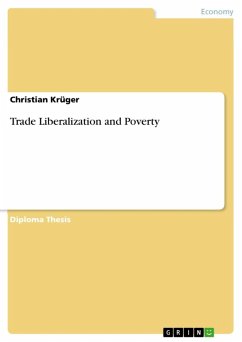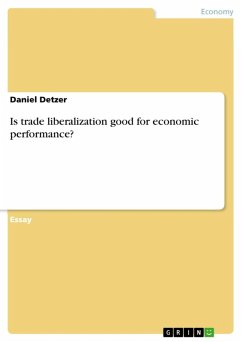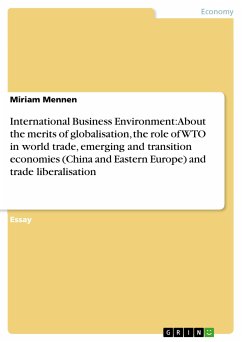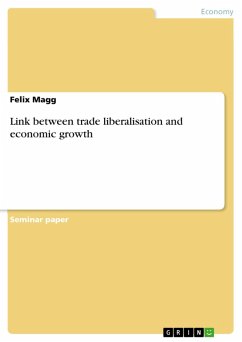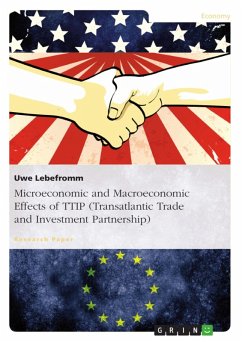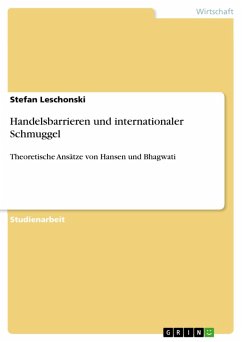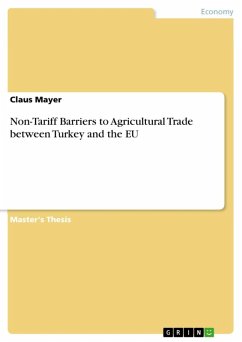Diploma Thesis from the year 2010 in the subject Economics - Foreign Trade Theory, Trade Policy, grade: 1,0, University of Osnabrück (Fachbereich für Außenwirtschaft), language: English, abstract: After the successful experience of newly industrializing countries in East Asia (e.g., the East Asian Tigers: Hong Kong, Singapore, South Korea, and Taiwan) in the 1960s and Southeast Asia (e.g., the Southeast Asian Little-Tigers: Indonesia, Malaysia, the Philippines, and Thailand) by the late 1970s, trade liberalization (TL) in less developed countries (LDCs) has been considered as a policy to achieve rapid economic development. The argu-ment, put forward for instance by Dollar et al. [2002, p.195], that ¿TL is good for [economic] growth¿ and that ¿[economic] growth, [in turn], is good for the poor¿ has since served as the departure point for the discussion of the link between TL and poverty among economists, researchers, and policymakers alike. Spurred on by the dramatic failure of import substitution industrialization (ISI) strategies, and with the advice and support from international financial institutions (IFIs), such as the World Bank, the International Monetary Fund (IMF) and the World Trade Organization (WTO), Krueger [1998, p.1521], for instance, finds that the intervening period has seen a large wave of TL episodes in countries in Latin America, Middle- and North Africa, Sub-Saharan Africa, and South Asia respectively. Believing that TL is vital for economic growth and poverty alleviation, these nations have frequently and extensively used it as a centerpiece for their development strategy. Howev-er, the high expectations held at the times those countries embarked on their trade policy reforms (TPRs) have not always been fulfilled in retrospect.
Dieser Download kann aus rechtlichen Gründen nur mit Rechnungsadresse in A, B, BG, CY, CZ, D, DK, EW, E, FIN, F, GR, HR, H, IRL, I, LT, L, LR, M, NL, PL, P, R, S, SLO, SK ausgeliefert werden.

